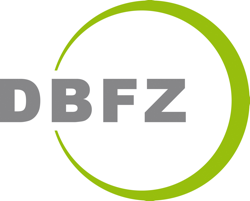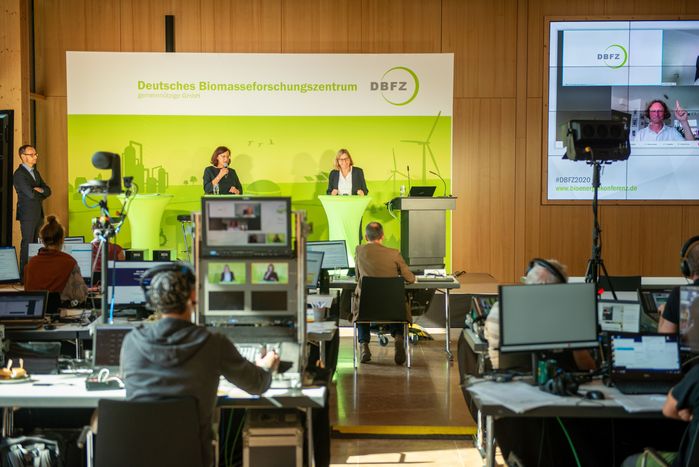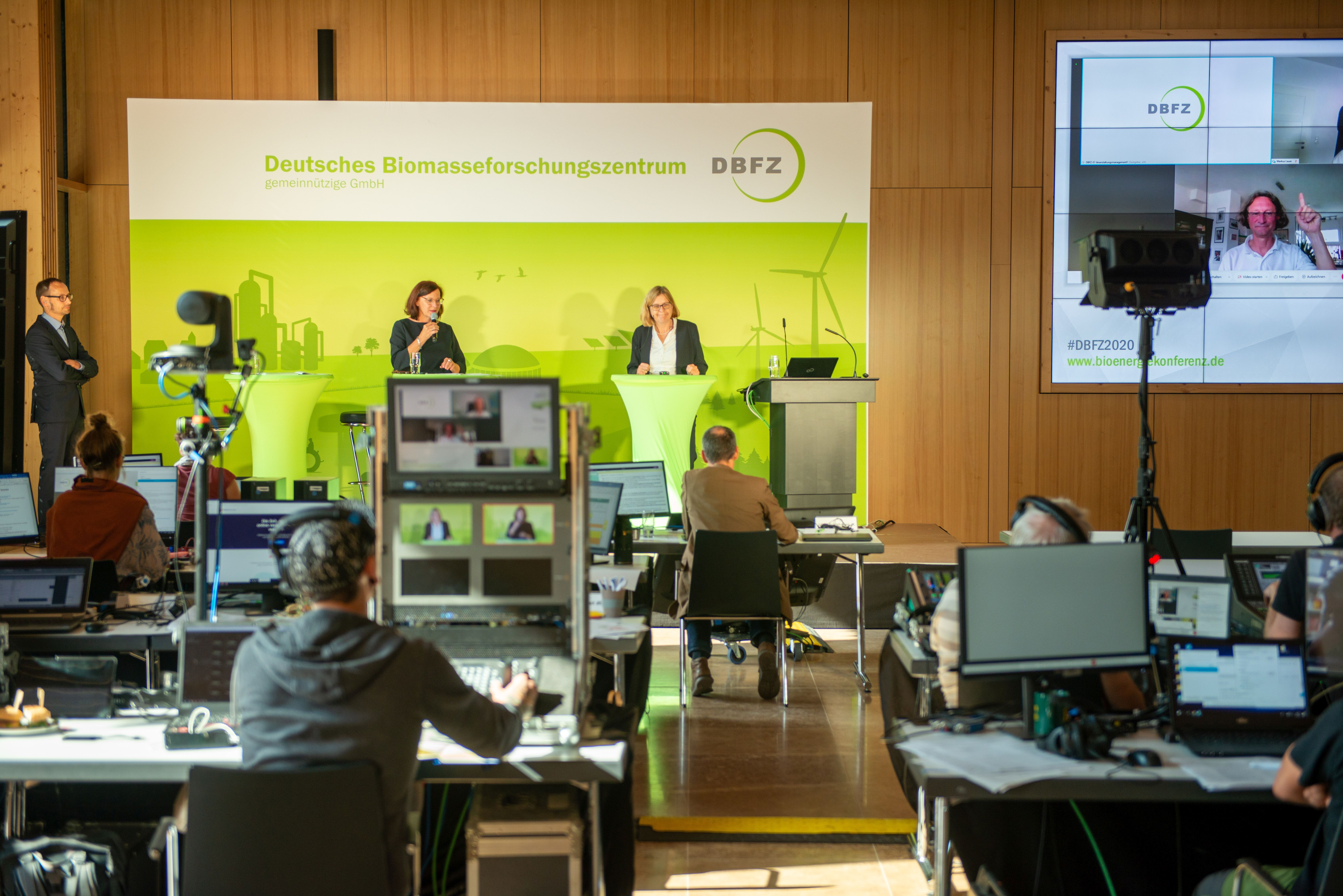"Climate neutrality needs fast and consistent measures!" - Annual conference of the DBFZ ends with new record attendance
How can renewable energy sources be used in a cost-effective, efficient, socially acceptable and sustainable way in a future energy system and a bio-based economy? A question to which the annual conference of the DBFZ (German Biomass Research Centre) on September 16-17 sought answers. Under the title "Bioenergy between climate package and bio-economy strategy", numerous scientific and innovative approaches were presented in Germany and abroad and discussed with a large number of experts from science, industry and politics. With a total of more than 350 participants, a new record number of participants was also achieved.
According to the German government's decision, renewable energy sources and resources are to significantly reduce greenhouse gas emissions and pave the way to a largely climate-neutral and cycle-oriented economy. Within the framework of this year's DBFZ annual conference, around 350 representatives from science, industry and politics met on 16th and 17th September to discuss possible ways of using biomass as a material and energy source, as well as its development and requirements. Due to the corona pandemic, this year's annual conference was mainly virtual.
In the plenary session "Political Perspective", MinR Dr. Hans-Jürgen Froese (Federal Ministry of Food and Agriculture, Head of Division "Bioeconomy, Material Biomass Use") referred to the new bio-economy strategy of the Federal Government as well as to societal challenges and questions, e.g. how the bio-economy can contribute as quickly and effectively as possible to the fulfilment of the international climate protection goals of the Paris Convention. According to Froese, for example, international cooperation in the field of the bio-economy must be intensified and parallel developments and cross-references to the Green Deal and the "farm to fork strategy" must be kept in mind. Also the federal/national activities on bio-economy strategies must be more closely coordinated and the bio-economy monitoring must be improved or made more permanent.
Climate neutrality requires consistent measures
In his introductory lecture the scientific managing director of the DBFZ, Prof. Dr. Michael Nelles, pointed out that concrete measures of the Federal Government are indispensable for the demanded climatic neutrality: "If Europe really wants to become the first climate-neutral continent by 2050, fast and consistent measures on a large scale are necessary. Climate neutrality can only be achieved through consistent energy conservation, a complete switch to renewable energies and the removal of CO2. Bioenergy must be used in combination with other renewable energy sources where the greatest system benefit is achieved. With its practice-oriented R&D based on the smart bioenergy concept, the DBFZ is making a significant contribution to the sustainable integration of bioenergy into the energy system and the bio-based economy of tomorrow," says Nelles.
Booming bioeconomy market
In addition to a large number of other speakers on various aspects of bioenergy and the bio-economy, energy economist Prof. Dr. Claudia Kemfert from the German Institute for Economic Research (DIW Berlin) also gave a vivid overview of the current state of the bio-economy in Europe and Germany in her presentation on "Climate Protection and Bioeconomy - Impuleses for Sustainable Growth in Germany?“. Among other things, the renowned expert pointed out the importance of the bio-economy for achieving the sustainable development goals (SDG) as well as the growing market of the bio-economy with the fields of bio-energy, recycling and waste management. According to Kemfert, the circular economy produces a multitude of innovative products as well as bio-based product innovations. Her conclusion: "The bio-economy market with around two million employees in Germany offers enormous economic opportunities through regional value creation and new jobs“.
The conference also did not miss out on the much-vaunted look beyond the horizon: Among others, Prof. Arnaldo Walter from the University of Campinas in São Paulo, Brazil, gave a lecture on "Bioenergy research in Brazil". Walter emphasized that the prospects for bioenergy in Brazil over a time horizon of ten years are quite positive despite the deep economic crisis and political uncertainties. Bioenergy is making a decisive contribution to the Brazilian energy matrix. The conditions are appropriate and the potential considerable, but there are many challenges to be overcome, including issues related to policy and regulation, R&D, sustainability and governance. Last but not least, it is important to recognize that Brazil has specific conditions that are suitable for bioenergy. Therefore, the best energy solutions are not necessarily the same as for other countries. This is an additional challenge.
In order to bring together and scientifically network young scientists in the field of bioenergy on a national and international level and to present relevant research topics from all areas of bioenergy, the 3rd Doctoral Colloquium BIOENERGY initiated by Prof. Dr. Daniela Thrän (DBFZ/UFZ/University of Leipzig) was also held after the annual conference of the DBFZ with about 150 participants. All results and presentations of this year's annual conference and the Doctoral Colloquium BIOENERGY will be compiled in conference readers after the event and published on the DBFZ website. Further information: www.bioenergiekonferenz.de / www.doc-bioenergy.de
Smart Bioenergy – innovations for a sustainable future
The DBFZ works as a central and independent thinker in the field of energy and material use of biomass on the question of how the limited available biomass resources can contribute to the existing and future energy system with sustainability and high efficiency. As part of the research the DBFZ identifies, develops, accompanies, evaluates and demonstrates the most promising fields of application for bioenergy and the especially positively outstanding examples together with partners from research, industry and public. With the scientific work of the DBFZ, the knowledge of the possibilities and limitations of energy and integrated material use of renewable raw materials in a biobased economy as a whole should be expanded and the outstanding position of the industrial location Germany in this sector permanently secured – www.dbfz.de/en.


